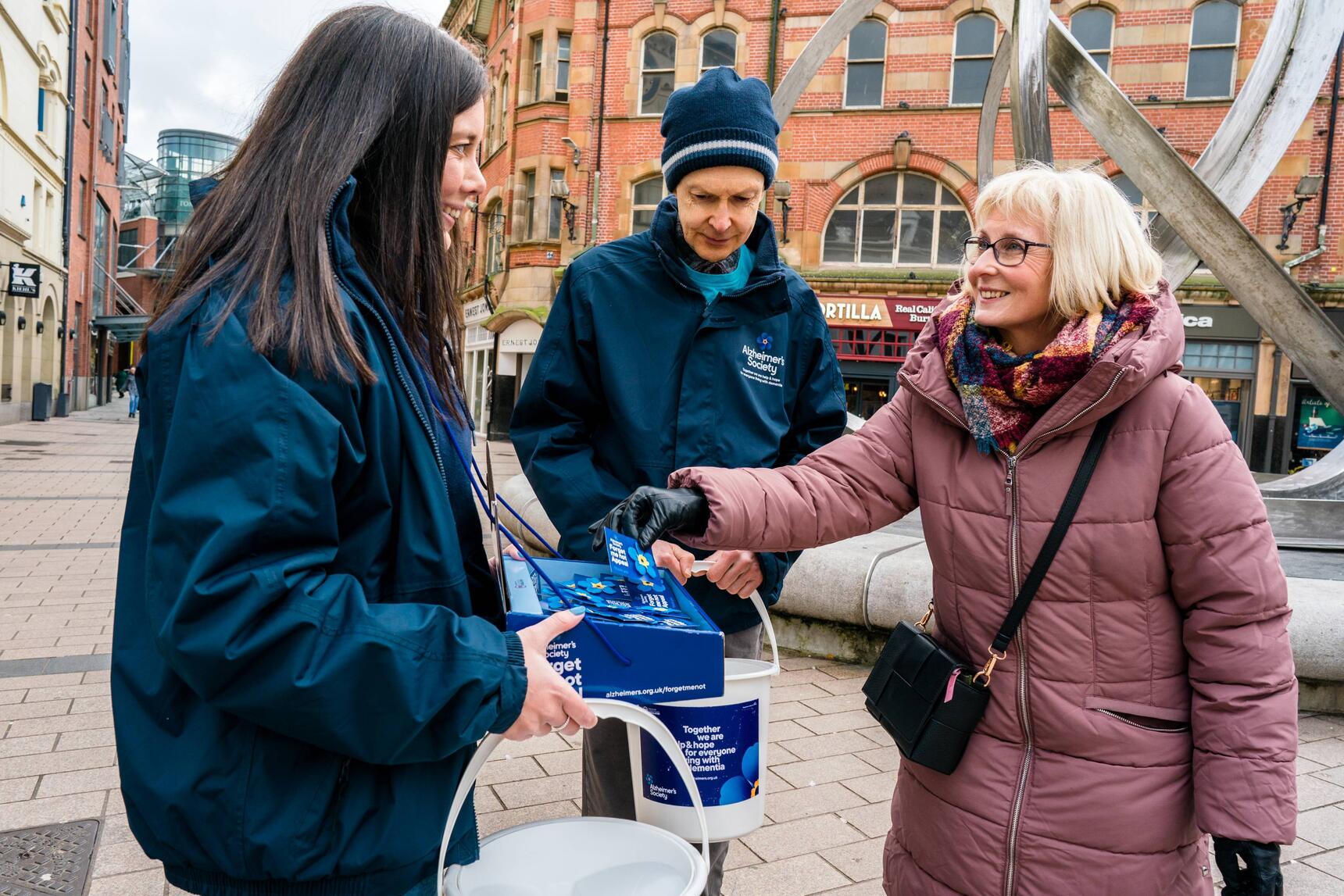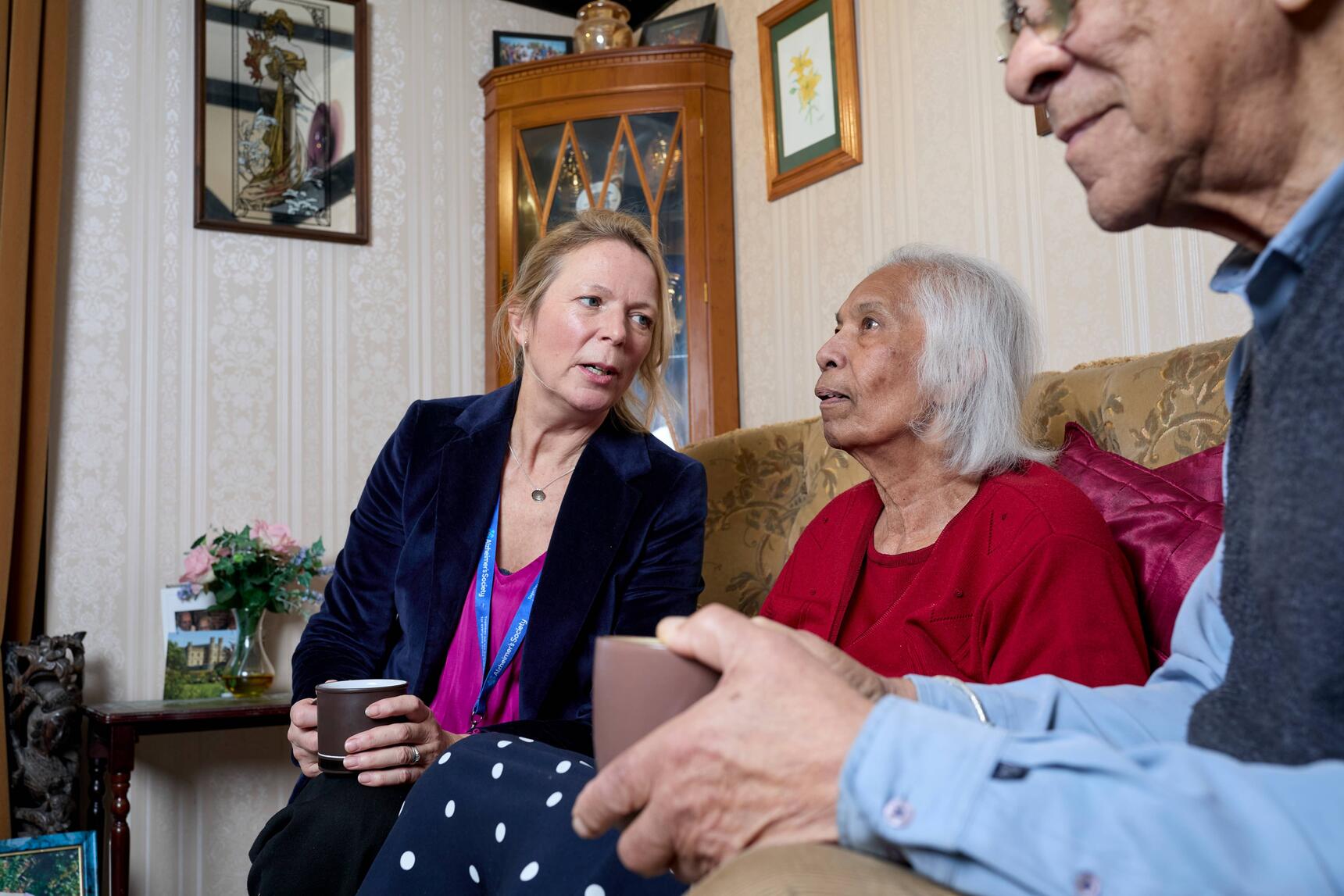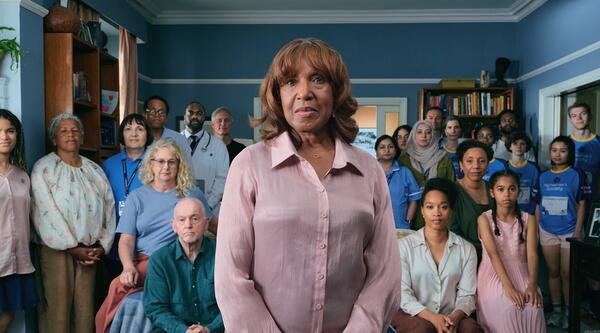Information
Supporters share their thoughts on our progress in 2024 and 2025
As our annual report launches, some of our supporters share their thoughts on what we've achieved.
It’s together, through our shared experience and determination, that we will beat dementia.
That’s why we asked some of our supporters to read our annual report and let us know what they thought about our progress in 2024 and 2025.
A sense of hope on the horizon for people living with dementia
'Good news has been hard to find in the last 12 months across so many spheres of life, local and international, so it’s heartening to read of progress by Alzheimer’s Society in this year’s report,' says Peter Hamilton, from Zurich Insurance UK, and board member of Alzheimer’s Society’s Insurance United Against Dementia campaign.
'This progress feels more important than ever. Research on cancer has outpaced dementia by a factor of three to one. That’s not to call that out as unfair, but to highlight the amazing breakthroughs we’ve seen in cancer treatment, and to imagine what we might do with similar funding for dementia.'
Stephen Kennedy, from Northern Ireland, who is living with dementia, said: 'The achievements outlined in the report are genuinely impressive.
'The 14% increase in active supporters compared to the previous year shows the strong public trust in, and commitment to, the Society’s mission.'

Persistent challenges for people affected by dementia
For Stephen, one of the most striking details in this year’s report was the large number of people in the UK still living without a formal dementia diagnosis.
It’s a big challenge and shows the clear need for more awareness, stronger advocacy around early diagnosis, and better assessment.
Debbie Cornelius, from North Wales, who cared for her dad when he had dementia, highlighted the ineffective pathways in health and social care systems and the need to continue to make the case for more coordinated support.
'I took quite a few different routes until we finally got the support we needed. Unless you've been through the experience yourself, you have absolutely no idea,' she said.
Stephen feels there are more challenges to address: 'Within the care sector, it is particularly concerning that, despite 70% of people in residential care having dementia, fewer than one-third of care staff have received specialist training. Closing this gap should be a priority [for the Society] if we are to improve the quality of care nationwide.'
Helen Gratton, who lives in Chesterfield and cared for her mum, Janice, when she was living with Alzheimer’s disease, echoed this: 'What gets forgotten when it comes to dementia is the mental health impact it has on people.
'In nursing homes there is an untouched category of people who have experienced trauma in their lives, and this comes to the forefront when they develop dementia. This is something that needs to be recognised and the Society needs to carry on fighting for through research and campaigning.'
The impact of our support
Helen stressed the importance of the support provided by the Society for people living with dementia and their families – particularly those who may face inequalities when it comes to accessing help.
The telephone support line is fantastic because, honestly, often it feels like there’s nothing else out there. Especially in towns like where I live. Without that kind of support, most people wouldn’t know where to start when a loved one develops dementia symptoms.
Stephen agrees: 'The report rightly celebrates the success of the Dementia Support Line which is reaching more people than ever. But I was also particularly encouraged by the Society’s focus on equality, inclusion, and extending support to communities of all backgrounds.'
Debbie also praised to the accessible guidance and the one-to-one support offered by the Society, with over 100,000 people reached directly through our services last year, saying: 'Support-wise, I think the Society are definitely doing the right things. All the booklets, the resources, the advice – they are so important.'

The importance of public awareness
Nimi Karachiwalla, who cared for her mum and is a member of the South Asian Community Dementia Voice Thematic Group, said: '"The Long Goodbye" campaign showed what this disease truly means. I was so glad to see it. This is what my mother was living every day and the whole family was affected. It is a harsh reality for many of us.
'Those who have been lucky enough to not see a loved one go through dementia are fortunate, but the public need to be made aware of the loss families experience. The TV advert certainly brought this to life.
'I think now, and only now, people are realising that dementia is the biggest killer and we all will know someone who has been affected by this terrible disease."
Debbie shares Nimi’s sentiment: 'Any kind of public awareness campaigns like that are fantastic in my opinion – stories have the most impact. Carers of people with dementia get recognised for what they're going through, people around them understand it a bit more, and ultimately there is more chance of wider change for people affected by dementia.'
It will take a society to beat dementia
While everyone highlighted the work ahead of us as we push towards a future where dementia no longer devastates lives, they also recognised the real differences being made to the daily lives of people affected by the condition.
As Stephen puts it, thanks to the progress we’ve made, from providing direct support to funding research breakthroughs, many now feel “genuine hope for the future”.
For Peter, looking back at the Society’s work over the past year, one of the most inspiring things is seeing the way in which people can come together to collaborate for positive change, saying: 'There are plenty of things that struck me in this year’s report – the importance of providing help and hope, the need for earlier diagnosis, but also the breadth of engagement needed to achieve our aims.
'It truly will take a society to beat dementia.'


